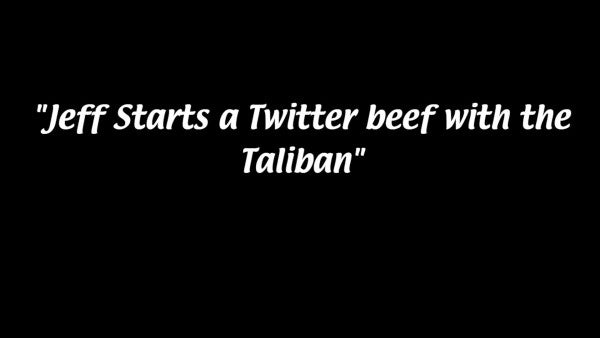Iran supports the Taliban with weapons, training, and money, Pentagon report says
"Tehran does not seek to return the Taliban to power but aims to maintain influence with the group as a hedge in the event that the Taliban gains a role in a future Afghan government," the report says.

Iran continues to support the Taliban to counter U.S. influence in Afghanistan, a recent Defense Intelligence Agency report on Iran's military power says.
Iran's other goals in Afghanistan include combating ISIS-Khorasan and increasing its influence in any government that is formed as part of a political reconciliation of the warring sides, according to the report, which the Pentagon released on Tuesday.
“Tehran does not seek to return the Taliban to power but aims to maintain influence with the group as a hedge in the event that the Taliban gains a role in a future Afghan government,” the report says.
Just as it does with its other proxies, Iran has provided the Taliban with financial support and training, a senior defense intelligence official said during a Pentagon news briefing about the DIA's Iran report.
The report itself does not delve into whether Iranian assistance to the Taliban is increasing or decreasing, the official told reporters on Tuesday.
Even though Iran and the Taliban nearly went to war in 1998, ties between both sides have warmed considerably since the U.S. invasion of Afghanistan, the DIA report says.
“Iran has provided materiel support to the Taliban since at least 2007, when NATO forces intercepted a shipment of weapons from Iran destined for the Taliban,” Navy Cmdr. Rebecca Rebarich, a Pentagon spokeswoman, said on Tuesday. “Iranian support has consisted of small arms, explosives, mortars, RPGs, heavy machine guns, and 107mm rockets, in addition to training in small unit tactics and the use of weapons systems.”
Right now, the level of Iranian support to the Taliban is low, but Iran could ramp up its assistance if tensions with the United States escalate, a senior Afghan government official told Task & Purpose on Tuesday.
Iran's assistance to the Taliban has not been as intense or sustained as the support provided by Pakistan, said Michael Kugelman, an Afghanistan expert at the Woodrow Wilson International Center for Scholars in Washington, D.C.
“Islamabad has gone much further, offering everything from sanctuary to medical treatment as well as military support,” Kugelman told Task & Purpose. “That said, the Iranian support, while relatively modest, shouldn't be underestimated. Among other things, it helped Taliban forces launch a major offensive in Farah, an Afghan province bordering Iran.”
A representative for the Iranian government could not be reached for comment.
Taliban spokesman Zabihullah Mujahid issued a statement denying that Iran or Pakistan has ever supported the group.
“Propaganda in this regard is a defamation effort that we have always categorically rejected,” Mujahid told Task & Purpose. “Our struggle is proceeding with the support and backing of our own nation and we do not need the aid of foreign countries.”
On May 31, a suicide car bomber attacked a U.S. convoy in Kabul, wounding four U.S. service members. Although the Taliban initially claimed responsibility for the incident, Secretary of State Mike Pompeo later claimed the attack was part of an Iranian campaign against the United States and its allies.
Separately, the Defense Department estimates that Iran provided militants with weapons that killed 603 U.S. troops in Iraq from 2003 to 2011.
“These casualties were the result of explosively formed penetrators, other improvised explosive devices, improvised rocket-assisted munitions, rockets, mortars, rocket-propelled grenades, small-arms, sniper, and other attacks in Iraq,” Navy Cmdr. Sean Robertson, a Pentagon spokesman, told Task & Purpose on Aug. 3.
